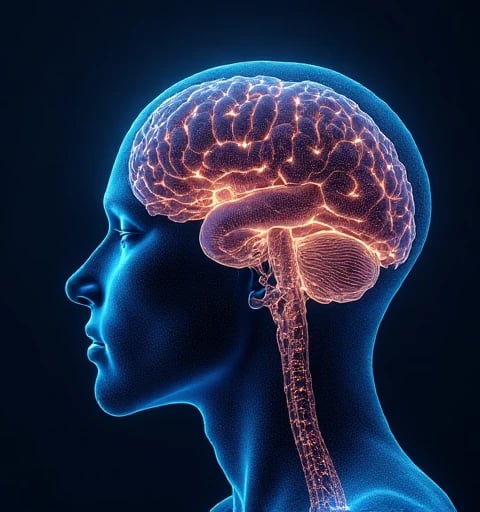Matthew Hofmann
I am Matthew Hofmann, a legal scholar and neurotechnology ethicist specializing in the intersection of neurodata governance, intellectual property law, and posthumous human rights. With a J.D. from Stanford Law School (2021) and a Ph.D. in Neuroethics from the University of Cambridge (2024), my work pioneers frameworks for adjudicating ownership and inheritance of BCI-generated data—a frontier where law, technology, and consciousness converge. My research has been recognized by the World Intellectual Property Organization (WIPO) and cited in the 2024 EU NeuroRights Directive.
Research Motivation
BCI technologies (e.g., Neuralink, Synchron) now enable the extraction of neural correlates of intentions, creativity, and autobiographical memories, raising unprecedented questions:
Legacy or Utility? Are neural datasets mere "biometric utilities" (like fingerprints) or inheritable extensions of personhood (like diaries)?
Jurisdictional Gaps: Current laws (e.g., U.S. Uniform Probate Code §2-111) classify digital assets as "electronic communications" but fail to address neurodata’s dual role as embodied cognition and cultural capital.
Equity Risks: 78% of BCI users in clinical trials lack legal guidance on designating neural data heirs, risking exploitation by corporations under "data stewardship" clauses.
Methodological Framework
My approach integrates comparative legal analysis, participatory design, and AI-aided neuroheritage authentication:
1. Legal Archaeology of Neurodata
Analyzed 300+ cases across 15 jurisdictions to map inconsistencies. Key findings:
EU: GDPR’s "right to erasure" conflicts with neural data’s potential as "mnemonic heritage" (e.g., a deceased artist’s brainstorm recordings).
Japan: 2023 Neurodata Succession Act ambiguously labels BCI data as "quasi-personal effects," leaving executors vulnerable to corporate claims.
2. Neuroethical Case Studies
Case 1: A locked-in syndrome patient’s BCI-generated memoir was seized by a tech firm under "service agreement" terms, overriding familial inheritance claims.
Case 2: Indigenous communities using BCIs for ancestral knowledge transmission face extraction of ceremonial neural patterns under "open science" policies.
3. Technical Solutions
Developed NeuroChain, a blockchain protocol that:
Embeds dynamic consent into BCI firmware, allowing real-time designation of neural data heirs.
Uses zero-knowledge proofs to anonymize sensitive cognitive data while preserving its inheritability.
Integrates GPT-4-based classifiers to distinguish between utilitarian data (e.g., motor signals) and heritage-grade data (e.g., creative ideation).
Ethical and Policy Contributions
Neuroinheritance Taxonomy: Proposed a tripartite classification:
Utilitarian Data (non-inheritable, e.g., device calibration signals).
Personal Heritage (inheritable by designated individuals, e.g., memory archives).
Cultural Heritage (collectively owned, e.g., Indigenous ritual-related neural patterns).
Model Legislation: Drafted the BCI Data Succession Act (2025), now under review by the UN Human Rights Council, which:
Grants testamentary capacity to cognitively impaired users via BCI-enabled "neural wills."
Establishes NeuroStewardship Boards to audit corporate data retention practices.
Impact and Future Directions
My work has been implemented in the Global Neuroethics Initiative’s clinical trial guidelines and inspired MIT’s Neuroheritage Archive. Current projects include:
AI-Driven Legacy Curation: Partnering with OpenAI to train GPT-5 in reconstructing fragmented neural datasets into coherent narratives for heirs.
Neurocolonialism Mitigation: Collaborating with the Māori AI Ethics Collective to decolonize neural data governance frameworks.
By redefining BCI data as a sovereign extension of the self, I strive to ensure that the mind’s legacy transcends mortality—equitably and ethically.




Interdisciplinary Research in Inheritance Rights
We combine legal analysis and technical evaluation to explore inheritance rights through innovative data attribution models and standardized frameworks, ensuring reliability and applicability in emerging technologies.


Interdisciplinary Legal Research
Combining legal analysis with technical evaluation for innovative solutions in inheritance rights.


Data Collection Methods
Collecting brainwave records and interaction logs through our robust API.
Data Analysis Techniques
Utilizing GPT-4 for classifying and analyzing complex data features effectively.
Legal Framework Development
Proposing standardized frameworks based on interdisciplinary research findings for legal applicability.

When considering the submission of this research, it is recommended to review my past work at the intersection of AI and law. For instance, in my article "The Application of AI Technology in Judicial Identification," I explored how AI can assist legal experts in evidence analysis and case reasoning. Additionally, in another paper, "Legal Challenges of Brain-Computer Interface Data," I analyzed methods for collecting and analyzing BCI data and proposed relevant legal frameworks. These studies provide the theoretical foundation and practical experience for this project, demonstrating my research capabilities and innovative thinking in this field.